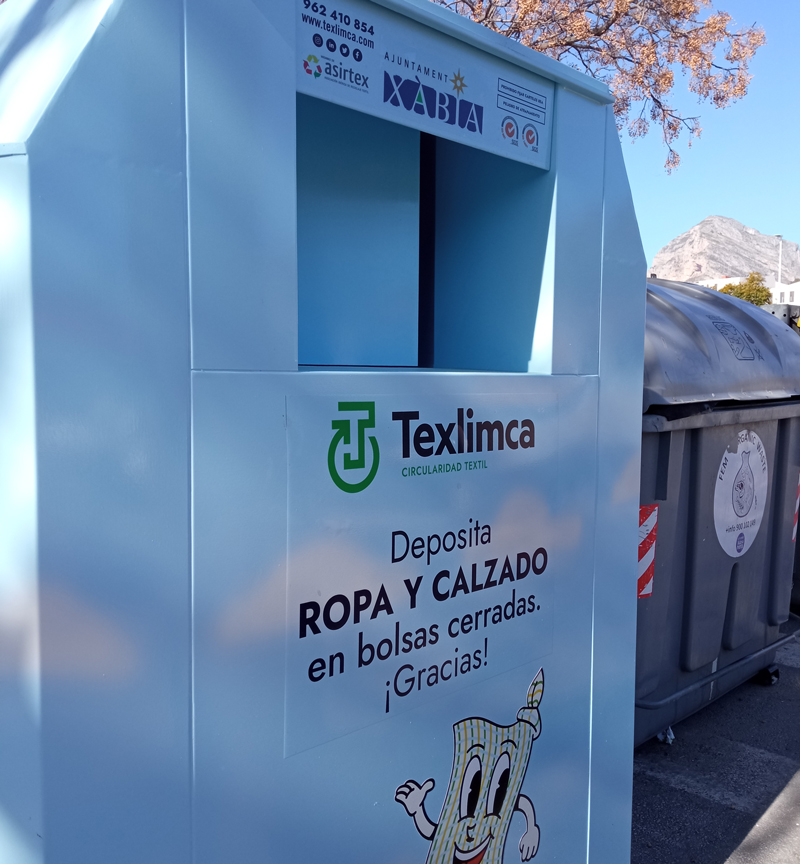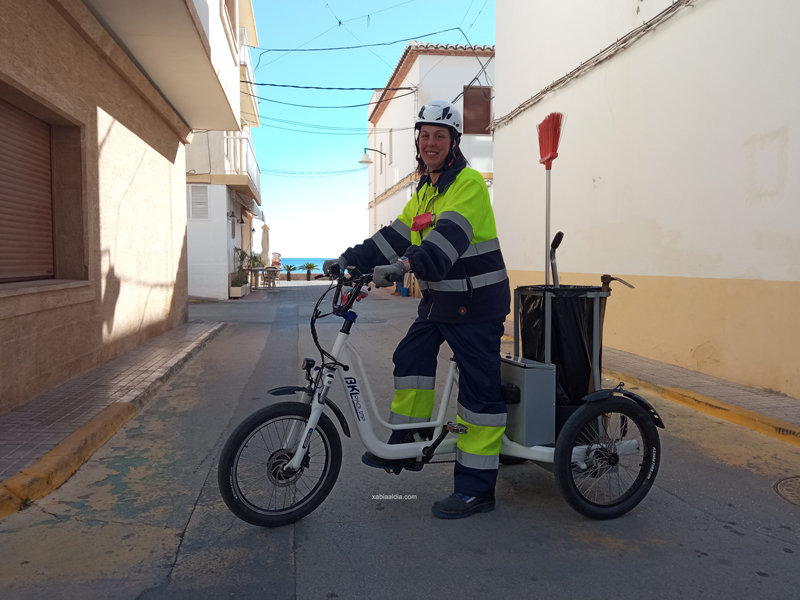Texlimca will be in charge of collecting recycled clothing in Xàbia
The company takes over the collection of used clothing in Xàbia from the Fundación Humana.

One of the new used clothing collection containers of Texlimca.
Wednesday 23rd February 2022 – Mike Smith
Translated from an original article by Carlos López on Xàbia AL DÍA
The Xàbia government team has continued to reveal details of the new rubbish collection service and street cleaning contract through the official local council networks and a few days ago it showed videos of a machine cleaning Camí de Cansalades and another cleaning Calle Santísimo Cristo del Mar street with pressurized water, breaking news that should not be such if it were not for the fact that the streets have not been cleaned with pressurized water for years, nor are they washed down except for the squares of the historic centre after the Fogueres fiesta in June.
Along with these novelties, the bicycles of the street cleaning operators are also very visible. With their helmet, and with an electric motor, they can move to any point in the area that they have to clean to keep it in good condition. Although, at first, it was surely a new experience for the workers themselves, although with the passing of days they have adapted to this addition to their working lives.

Another very prominent and visible changes has occurred in the bin areas scattered throughout the municipality and it is that the company responsible for the collection of used clothing has changed.
Until now, this responsibility fell on the Fundación Humana but since the new contract entered into force, both the recycling of used clothes and cooking oil form part of the agreement with TETMA and consequently the collection of used clothing has been assumed by Texlimca. New light blue containers, complete with the mascot Mr Wippy, have already been installed across the town.
According to its website, Texlimca was created in 1945 by a married couple from Alzira, who collected used footwear and clothing, but it wasn’t until 2002 that the company installed the first collection containers on public roads. It explained that, after collecting the used clothing and separating it, some 12% heads to vintage and charity shops or street markets, whilst the remainder is exported mainly to the United Arab Emirates, Togo, India, Pakistan and several Central African countries.






